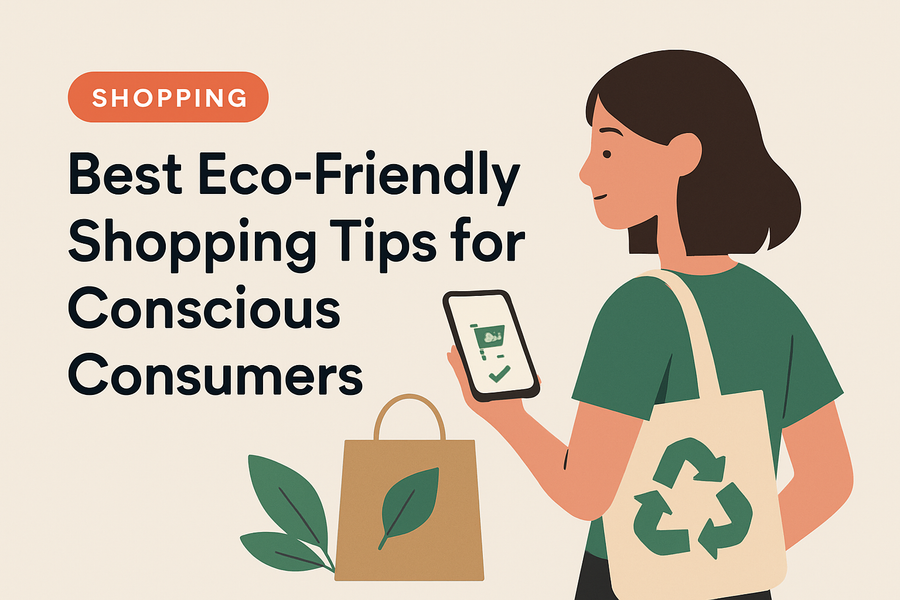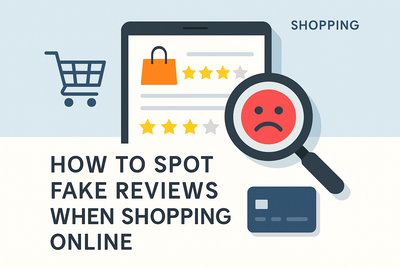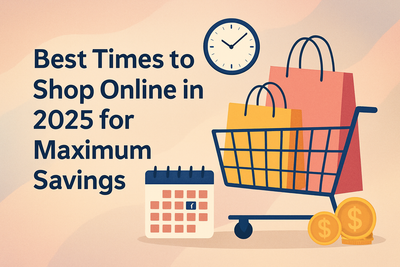Best Eco-Friendly Shopping Tips for Conscious Consumers
Introduction
With climate change and environmental concerns taking center stage globally, many consumers are looking for ways to live more sustainably. One of the most impactful places to start is with our everyday shopping habits. From the products we buy to the packaging they come in, every choice can either help or harm the planet. You don't have to make drastic lifestyle changes overnight to make a difference — small, mindful shopping decisions can collectively create significant positive impacts. Whether you're new to sustainable living or looking to refine your eco-conscious routine, this guide offers practical, achievable eco-friendly shopping tips that every conscious consumer can apply.

1. Bring Your Own Bags, Containers, and Bottles
Plastic bags, containers, and single-use beverage bottles contribute significantly to landfill waste and ocean pollution. One of the simplest yet most effective sustainable shopping habits is to always carry reusable alternatives:
- Reusable shopping bags: Keep a few fabric or sturdy recycled plastic bags in your car, purse, or backpack.
- Produce bags: Instead of using plastic produce bags, opt for mesh or cloth versions.
- Bulk containers: For buying grains, spices, and other bulk items, bring your own jars or containers.
- Water bottles and coffee cups: Choose stainless steel or BPA-free reusable versions and avoid disposables.
These items not only reduce waste but also often earn you small discounts at participating stores.
2. Buy Local and Support Farmers’ Markets
Buying local has multiple eco-friendly benefits. Products grown or manufactured locally require less transportation, which means fewer greenhouse gas emissions. Additionally, local produce is usually fresher and grown in season, often without harmful pesticides.
Supporting farmers’ markets encourages sustainable farming practices and stimulates the local economy. When shopping locally, you’re likely to find minimal packaging, further reducing waste.
3. Choose Products with Minimal or Recyclable Packaging
Packaging plays a major role in a product’s environmental impact. Opt for items with compostable, biodegradable, or recyclable packaging when available. Some brands are moving toward zero-waste packaging or using materials like:
- Recycled cardboard or paper
- Glass jars instead of plastic
- Aluminum cans, which are endlessly recyclable
As a consumer, supporting these brands signals demand and can influence industry-wide shifts toward greener packaging.
4. Research Ethical and Sustainable Brands
Not all eco-friendly claims are created equal — some companies engage in greenwashing, where they market themselves as sustainable without real commitment. Do a bit of research on the brands you support:
- Check if they use renewable resources and ethical labor practices
- Look for certifications such as Fair Trade, B Corp, USDA Organic, or Rainforest Alliance
- Read customer reviews and sustainability reports
Supporting transparent, responsible companies ensures your money backs real environmental progress.
5. Embrace Secondhand Shopping
Fast fashion and overconsumption contribute significantly to waste. One powerful way to counteract this is by buying secondhand. Whether it's clothing, furniture, electronics, or books, secondhand shopping extends the life cycle of products and keeps them out of landfills.
Explore options such as:
- Thrift stores and consignment shops
- Online resale platforms (like Poshmark, ThredUP, or Facebook Marketplace)
- Clothing swaps with friends and community members
You'll often save money and find unique, high-quality items.
6. Buy in Bulk to Reduce Packaging Waste
Purchasing products in larger quantities reduces the amount of packaging used per unit of product. Consider buying pantry staples, cleaning supplies, and even personal care products in bulk. Better yet, visit zero-waste or bulk stores where you can refill your own containers.
This practice minimizes plastic use, reduces transport emissions, and often saves money over time.
7. Prioritize Quality Over Quantity
Investing in durable, long-lasting products may cost more upfront but saves money and the planet in the long term. Avoid cheap, disposable goods that quickly end up in landfills.
Ask yourself before buying:
- Will this last?
- Is it repairable?
- Is it made from sustainable materials?
Spending wisely on fewer high-quality goods supports a more mindful, minimalist lifestyle.
8. Avoid Impulse Buying
Many impulse purchases are unnecessary and lead to waste. Adopting a more intentional shopping mindset helps avoid clutter and environmental harm. Some helpful strategies include:
- Creating a shopping list and sticking to it
- Implementing a 24-hour rule before purchasing non-essential items
- Evaluating needs vs. wants before buying
Mindful consumption promotes sustainability at its core.
9. Support Zero-Waste and Refill Stores
Zero-waste stores are growing in popularity and allow you to purchase products without packaging. Bring your own containers to stock up on everything from soaps to cereals.
These shops often stock ethically sourced, organic, and sustainable products, making it easier to align your values with your purchases.
10. Recycle and Dispose Responsibly
Even with the best intentions, some waste is inevitable. Make sure to recycle correctly by familiarizing yourself with local recycling guidelines. For hard-to-recycle items like electronics, batteries, and light bulbs, look for specialized drop-off centers or mail-in programs.
Proper disposal helps prevent environmental contamination and supports circular resource use.
Conclusion
Eco-friendly shopping isn’t about perfection — it’s about progress and mindfulness. By adopting even a few of these sustainable shopping tips, you can significantly reduce your environmental footprint and encourage systemic change through consumer demand. Remember, every purchase is a vote for the kind of world you want to live in. As a conscious consumer, your choices matter. So grab your reusable bags, do your research, and shop with intention. The planet — and future generations — will thank you.








